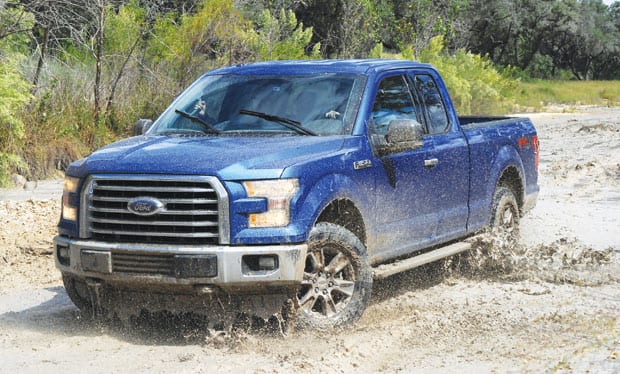Your car could be your wallet’s best friend … or its worst enemy

GOOD CLEAN FUN | Off-roading is fun, but be sure to wash down your ride when you’re done — built-on mud and dirt not only affects the paint job (which is costly to repair), but can contribute to premature corrosion of the undercarriage.
RICH LOPEZ | Contributing Writer
Sean Collins, a certified mechanic and lube shop manager at Plaza Car Wash, offers these tips on tending to your cars needs so it can always be a sweet ride.
Follow the guidelines. “Maintaining the factory recommendations is one of two biggest things you can do to keep up a vehicle,” he says. “That means regular oil changes, tires checked, fluids changed and flushed and all that can get you up to 250,000–300,000 miles out of that car easily. And if not, then maybe about 100,000.”
Spic-n-span. People who seem to spend way too much time making their car shine are actually doing a service to their rides — even if it just a vanity project.
“Keep it clean,” Collins says. “Dirt or sand builds up and cakes on your car. What that does is start to tear up the paint job, but it also will capture moisture under the car and start rusting the undercarriage. A car wash is far cheaper than a paint job or fixing those parts.”
Air heads. One of the most common oversights in car maintenance is underinflation of the tires. It can be not just detrimental, but catastrophic.
“This causes premature wear on the tires, but also significantly affects fuel mileage because of rolling resistance,” Collins says. “Simply put, it takes more energy to move down the road which means filling up more often. And of course, low tires can cause a blow out.”
It’s a syn. Collins recommends opting for synthetic oils; in the long run, they save money. A conventional oil change is good up to 3,000 miles, but synthetic oil can last up to 6,000 miles, so you do it less often. That saves not just money, but down-time while your car is being serviced. And you can easily switch between them. “That’s an old wives’ tale that you can’t — going from conventional to synthetic won’t hurt a thing. Newer cars require it so just keep that in mind, but yes, I’d say go for the synthetic oil now,” he says.
Skip the accessories. Some conventional money savings steps aren’t really useful: “Fuel additives are pretty unnecessary except maybe once or twice a year,” Collins says.
Lease is more. For those with leased cars, a lack of maintenance can result in “negligence fees” by lease companies that can run into the thousand-dollar range.
Speaking of purchasing an auto, when it comes to buying a new car, Brian Smith of Toyota of Irving says some discounts can be found early on.
Cold call. “It’s always best to call the dealership ahead of time and speak with a sales rep,” he advises. “You can always feel free to ask if there are any rebates or special finance incentives such as zero percent interest and what cars have those monthly incentives.”
Forget the bank. Smith notes that many credit unions maintain relationships with dealerships. This can lead to saving money and time on negotiating prices.
New vs. used. Think buying used is cheaper? You’re insurance company might not. “Some insurance companies may give you a 10–15 percent discount for buying a new car rather than a pre-owned car,” Smith says.
Additionally, look into store memberships. Shops like Costco offer auto programs where vehicles including boats, motorcycles and, of course, cars are already priced for members. Benefits extend to service and maintenance after purchasing.
This article appeared in the Dallas Voice print edition February 20, 2015.


